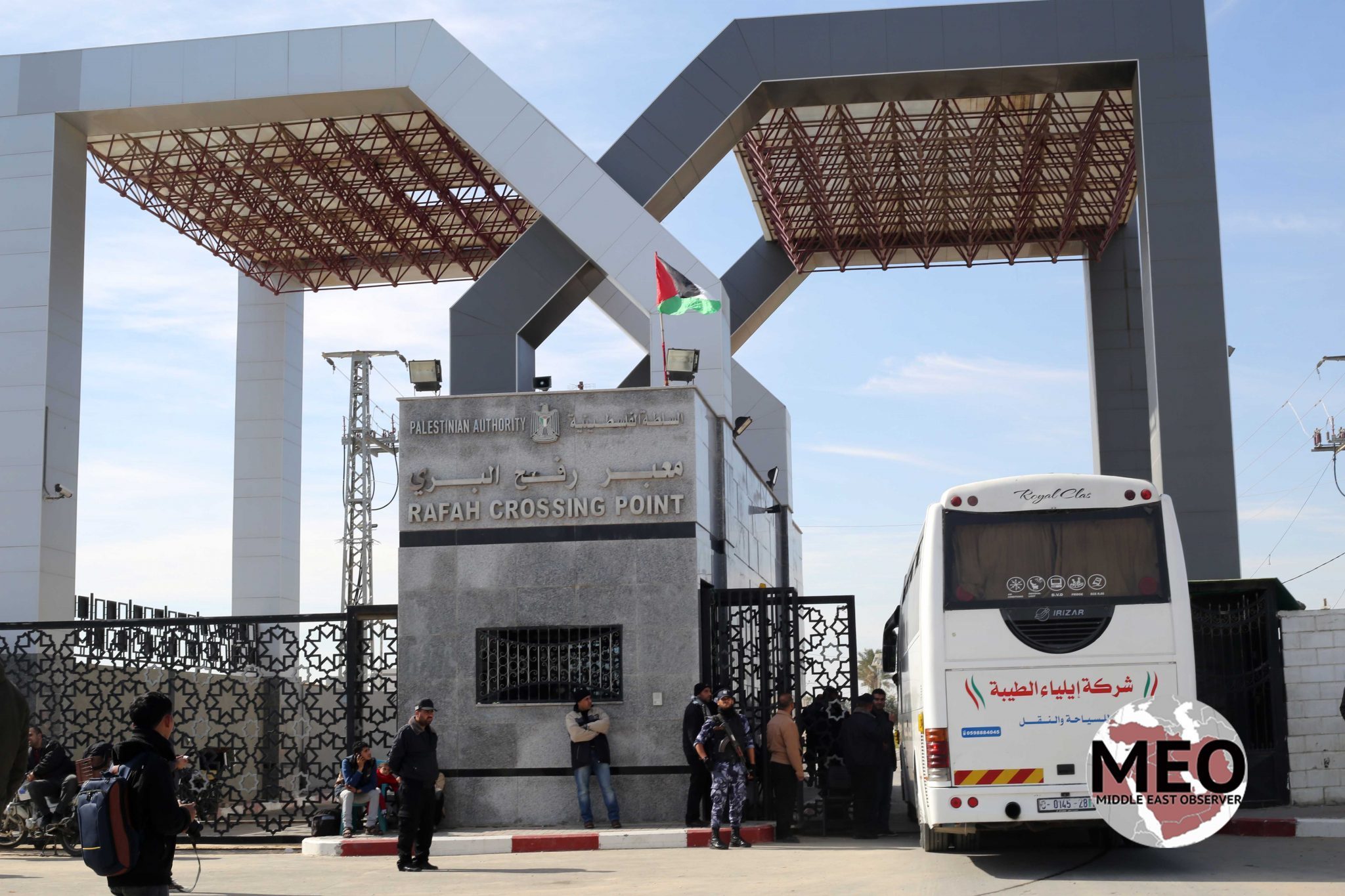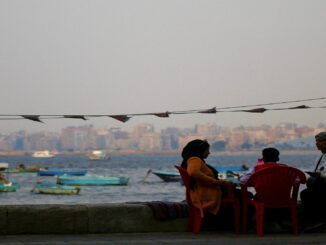The crossing initially opened on Saturday for three days, but Egyptian authorities decided on Monday to keep the crossing open on Tuesday, the ministry said.
However, the Palestinian Authority embassy in Cairo had previously stated that the crossing would be open four days.
A spokesman for the Palestinian side of the Rafah crossing, Wael Abu Omar, told Ma’an that 755 Palestinians left Gaza while 1,035 people entered the besieged coastal enclave through the crossing on Monday.
Abu Omar added that Egyptian authorities denied 31 Palestinians entry on Monday for unspecified reasons.
Meanwhile, the spokesman said that 70 trucks carrying construction materials were allowed into the blockaded Palestinian territory.
Two travelers died “of natural causes” at the Rafah crossing on Sunday, the Palestinian border committee said on Monday, without providing further details on the circumstances surrounding the deaths. However, many of the Palestinians who are given priority to leave the blockaded Palestinian enclave are those seeking medical treatment abroad.
Prior to the four-day opening, the Rafah crossing had been closed for 38 days.
While the Egyptian border has remained the main lifeline for Gazans to the outside world, Egyptian authorities have slowly sealed off movement through the border and upheld an Israeli military blockade on the Gaza Strip since the ousting of former President Muhammad Morsi in 2013 and the rise to power of Abd al-Fattah al-Sisi in Egypt.
According to the United Nations, during 2016, the crossing was partially opened for only 44 days. In 2015, the crossing was only open for 21 days.
Over 20,000 people, including humanitarian cases, are registered and waiting to cross, according to Palestinian authorities in Gaza.
Due to the constraints on Palestinian movement through the crossing, many Gazans are commonly barred from leaving or entering the besieged coastal enclave, some for months at a time, as the crossing is only periodically opened by Egyptian authorities, stranding Palestinians on both sides of the crossing during closures.
The decade-long Israeli blockade has plunged the Gaza Strip’s nearly two million Palestinians into extreme poverty and some of the highest unemployment rates in the world.
Gaza’s infrastructure has yet to recover from the devastation of three Israeli offensives over the past eight years. The slow and sometimes stagnant reconstruction of the besieged coastal enclave has only been worsened by the blockade, leading the UN to warn that Gaza could become “uninhabitable” by 2020.




